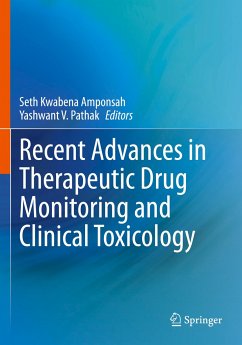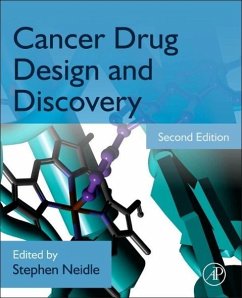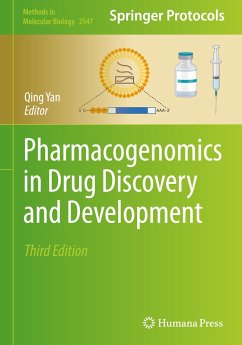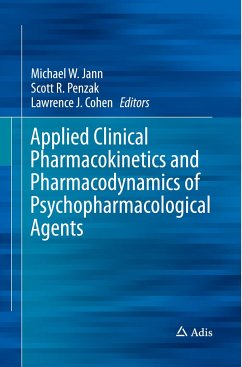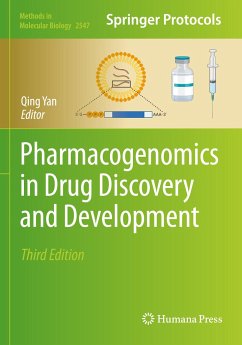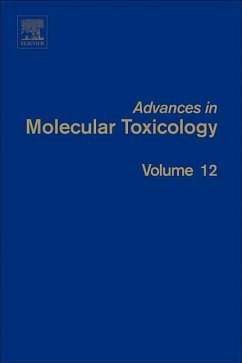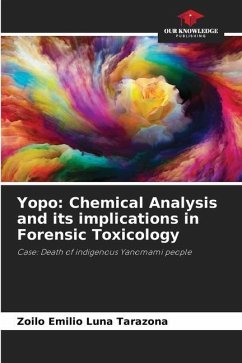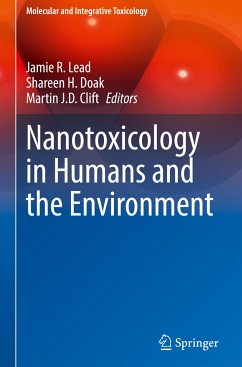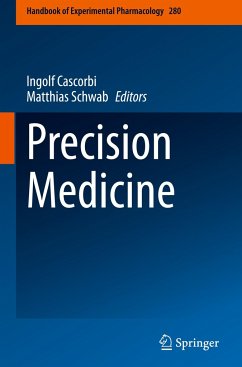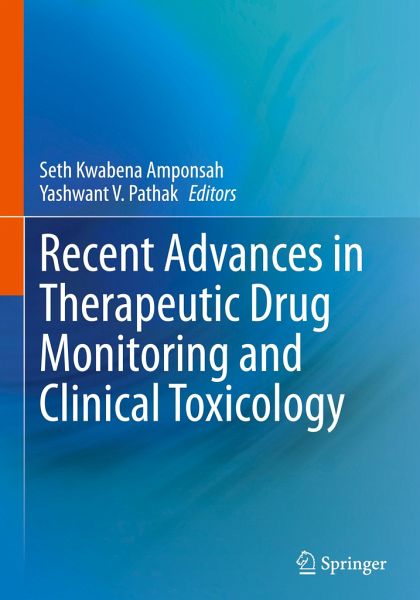
Recent Advances in Therapeutic Drug Monitoring and Clinical Toxicology

PAYBACK Punkte
76 °P sammeln!
This book gives an overview of therapeutic drug monitoring (TDM) and its clinical application. It also highlights recent advances in toxicological studies, as they relate to therapeutic drug monitoring.This is one of the few books available on the market that covers TDM. Therapeutic drug monitoring (TDM) is a clinical decision-making tool that enables dosage regimen adjustments based on clinical and laboratory measurements. TDM not only involves the measuring of drug concentrations but also interpretation of the results. There is a strong correlation between drug concentrations in body fluids ...
This book gives an overview of therapeutic drug monitoring (TDM) and its clinical application. It also highlights recent advances in toxicological studies, as they relate to therapeutic drug monitoring.
This is one of the few books available on the market that covers TDM. Therapeutic drug monitoring (TDM) is a clinical decision-making tool that enables dosage regimen adjustments based on clinical and laboratory measurements. TDM not only involves the measuring of drug concentrations but also interpretation of the results. There is a strong correlation between drug concentrations in body fluids and outcome than between dose and outcome. The chapters include coverage of analytical techniques, pharmacokinetics, therapeutic indices, artificial intelligence and recent advances in toxicological studies.
The book fills a gap in published literature and provides reliable information on;
Analytical techniques in TDM and clinical toxicology TDM and pharmacokinetic studies TDM of drugs with narrow therapeutic indices Artificial intelligence in TDM and clinical toxicology Future directions and challenges
This is one of the few books available on the market that covers TDM. Therapeutic drug monitoring (TDM) is a clinical decision-making tool that enables dosage regimen adjustments based on clinical and laboratory measurements. TDM not only involves the measuring of drug concentrations but also interpretation of the results. There is a strong correlation between drug concentrations in body fluids and outcome than between dose and outcome. The chapters include coverage of analytical techniques, pharmacokinetics, therapeutic indices, artificial intelligence and recent advances in toxicological studies.
The book fills a gap in published literature and provides reliable information on;
Analytical techniques in TDM and clinical toxicology TDM and pharmacokinetic studies TDM of drugs with narrow therapeutic indices Artificial intelligence in TDM and clinical toxicology Future directions and challenges



